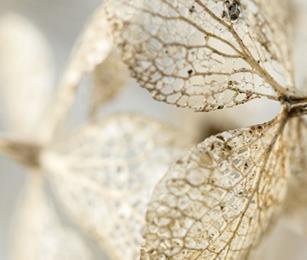
“I’m fine” is a lie I tell on an almost daily basis.
It’s easier to pretend that all is well, rather than have to speak out loud the terrifying reality of diagnoses, heartbreak, heartache, and hopelessness which feature beneath the surface.
I suspect I am not alone in this experience.
How can we offer hope when we are the ones trying to keep ourselves together? How can we speak up and act into the lives of those people trying desperately to keep everything together? How then, can we nurture hope in those around us?
When Jesus started his ministry, he offered hope to ordinary working-hard-to-keep-it-together-families. The words he used: “Come and see” or alternatively: “Pay attention”.
Pay attention – as Jesus healed the sick.
Pay attention – as stories challenged the powerful.
Pay attention – as those neglected on the margins became the centre of the story.
Pay attention – and know God’s love.
Pay attention – for the Kingdom of God is here.
The late sociologist and journalist David Foster Wallace once wrote: “It is within your power to experience a crowded, loud, slow, consumer-hell-type situation (think your local shopping centre at Christmas) as not only meaningful but sacred, on fire with the same force that lit the stars – compassion, love, the sub-surface unity of all things... You get to consciously decide what has meaning and what doesn’t. You get to decide what to worship.”
When we pay attention, we are able to be in the most overwhelming situation and still notice God’s grace (one might say ‘the Kingdom of God’) in our midst. Suddenly life is on fire with the spiritual sparks of hope crackling beneath us. Hope lights up the darkness and brings new understanding and opportunity.
There are a few practical ways in which we might make this more of a reality in our lives, and in the lives of others.
• Model it. This means doing the things which help us to be honest and joyful people. Anxiety is part of daily life in the UK, but simple actions can help us not to become overwhelmed or incapacitated by the emotions and sensations it brings on. Breathe more slowly. Stretch. Find a different space to work in for a while. Create. Make a pot of tea and serve it in your favourite mug. Dance in the rain. Find the strategies and communities which help you to do more than merely cope. It’s OK if this requires medication.
• Be vulnerable. Tell your truth and own your story. Be willing to talk about it appropriately. Hope and courageous communities come through vulnerable truth-telling. You may need to find the professional help to enable you to move forwards into the next chapter of your life; or else support others to do this for themselves.
• Receive generosity. In the midst of fear, hopelessness and despair it is almost impossible to ask for help. But we need to. Be brave and ask for what you need: from a cake to taking the kids so that you can have a shower. Being hope-filled ourselves means accepting help, as much as offering it to other people. After all, in many cases, offering help is a way for other people to maintain control when their own lives are spiralling.
• Ask twice. The principle of this Australian mental health campaign is simple – if you are first met with the response, “I’m fine”, then ask a second time: “How are you?” Make sure that you have the time to pay attention and to really hear what is going on in people’s lives. Hope comes by being present for as long as it takes. Hope is not about fixing things. It’s about being there.
• Move. Walk. Run. Being in the midst of creation – from urban sprawl to rural idyll – has a transformative effect in re-orientating our experiences and perspectives, building community, and nurturing hope in each other and the wider creation.
• Do things which take you out of your comfort zone. Read a different newspaper. Listen to a radio station you wouldn’t choose. Change the TV channel. Climb a ladder. Find ways to stretch your experiences and your understanding of the world. Fear closes us down and reduces our worldview. Hope pushes outwards, open-handedly and open-heartedly.
Hope is our prescription to a world which, in its fast-paced, multi-storied way, fills us with a sense of inadequacy, anxiety, and pain. Hope is God’s gift to a hurting world. Three things remain: faith, hope and love.
So, how are you?
Rev Dr Joanne Cox-Darling is a mother, minister and missiologist in South Staffordshire. You can read more about living hopefully in her latest book Finding God in a Culture of Fear (BRF, 2019).


























